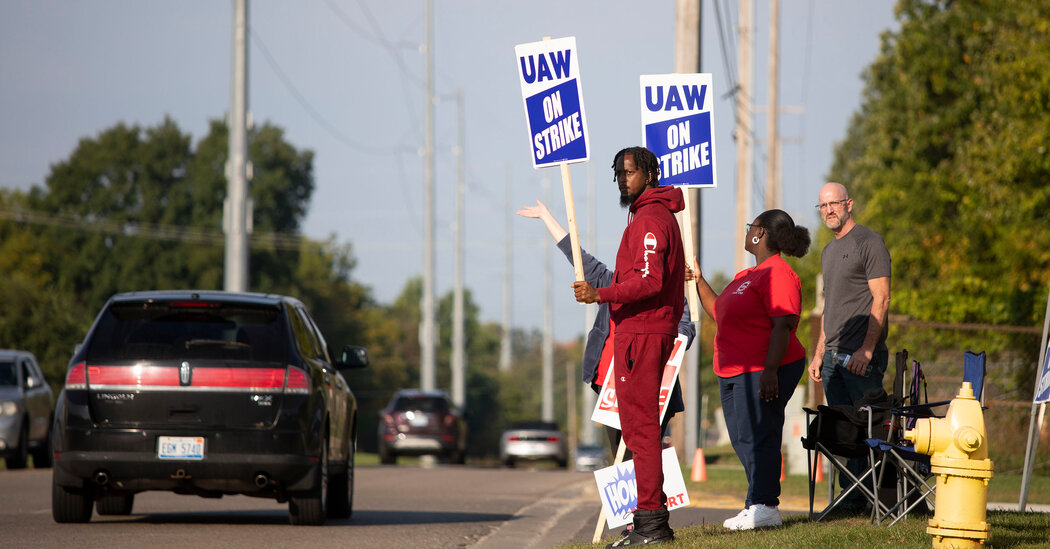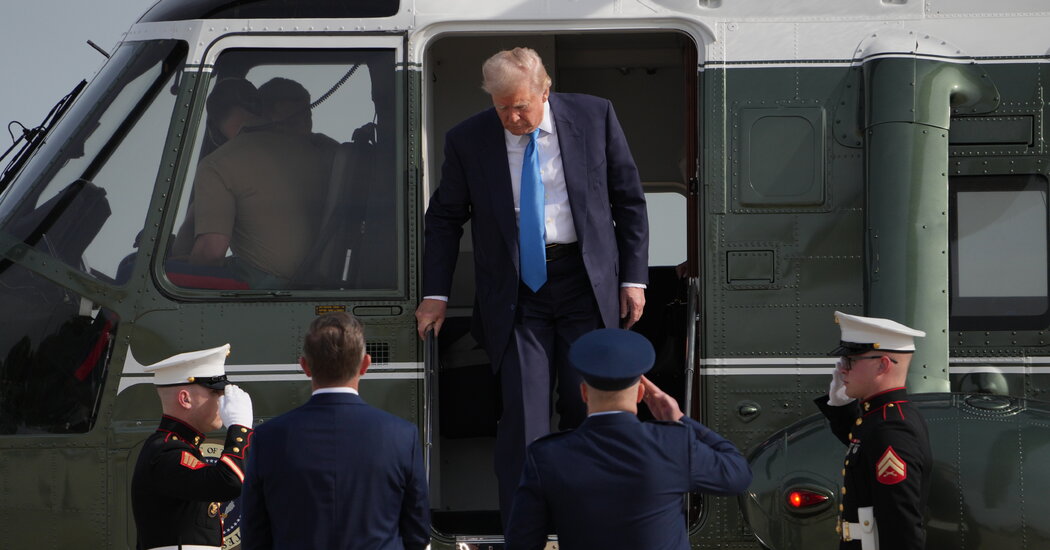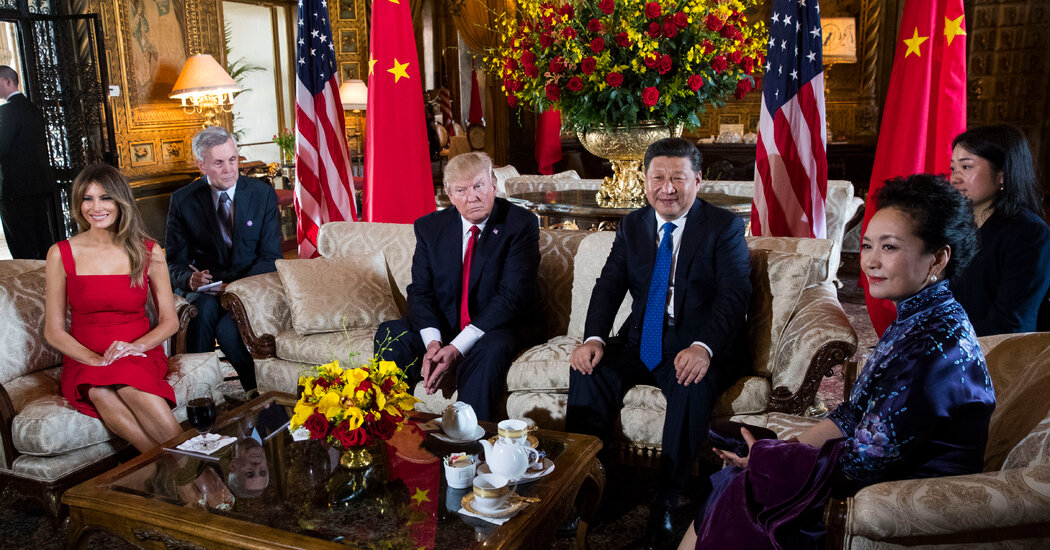United Auto Workers Widens Job Action Against Ford and General Motors
September 29, 2023 | by Kaju

The United Automobile Workers (UAW) union has expanded its strike against Ford Motor and General Motors (GM) by including two more car assembly plants. The union claims that the companies have not made sufficient progress in meeting its demands for higher pay and benefits.
This latest escalation follows the strikes that started on September 15 at three plants owned by GM, Ford, and Stellantis. However, the strike against Stellantis has not been expanded this week due to progress made in negotiations.
The UAW president, Shawn Fain, announced that workers at a Ford plant in Chicago and a GM factory in Lansing, Michigan, would walk off the job on Friday. The Lansing plant produces Buick Enclave and Chevrolet Traverse sport-utility vehicles for GM, while Ford’s Chicago plant manufactures the Explorer, Police Interceptor Utility, and Lincoln Aviator.
Fain stated in a live-streamed video that “Ford and GM have refused to make meaningful progress at the bargaining table.”
Currently, the UAW strike includes more than 25,000 members from the three companies. The union is seeking a significant wage increase for workers, citing the substantial profits generated by all three automakers in the last decade. The companies have offered roughly 20% pay raises over four years.
While the UAW and Ford have reached agreements on some demands, such as cost-of-living adjustments and the right to strike if plants close, the negotiation process with both companies is ongoing.
According to Erik Gordon, a business professor at the University of Michigan, UAW President Shawn Fain is skillfully negotiating with the car companies. He added, “One week he gets Ford to give more… The next week he tells Ford they haven’t given enough and closes one of their plants.”
However, Gordon warned that if the companies agree to most of the UAW’s demands, they may face challenges in competing with nonunion automakers like Tesla in the growing electric vehicle market.
The UAW is concerned that automakers may use the transition to electric vehicles to lower wages and reduce the number of unionized workers. The union wants to include workers at battery factories owned by automakers in their national contracts with the UAW. The automakers argue that most battery plants are joint ventures with foreign companies and cannot be included in national contracts.
While negotiations continue, tensions have flared on the picket lines, including incidents of violence and confrontations between strikers and non-striking employees.
The strategy of striking at limited locations while spreading the walkouts to plants owned by all three automakers is a departure from the UAW’s traditional approach. The union hopes to keep the companies guessing about future strikes to improve its negotiating position. The limited strike also minimizes damage to suppliers, local businesses, and the national economy while reducing the financial cost to the union.
Overall, the UAW’s job action against Ford and GM continues as negotiations for better pay and benefits for workers remain ongoing.
Focus keyword: United Auto Workers
RELATED POSTS
View all


